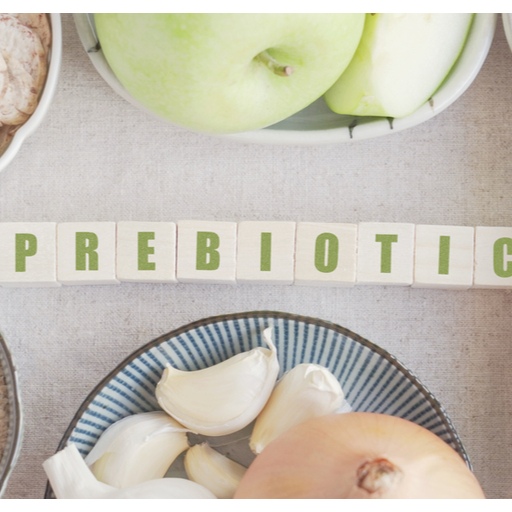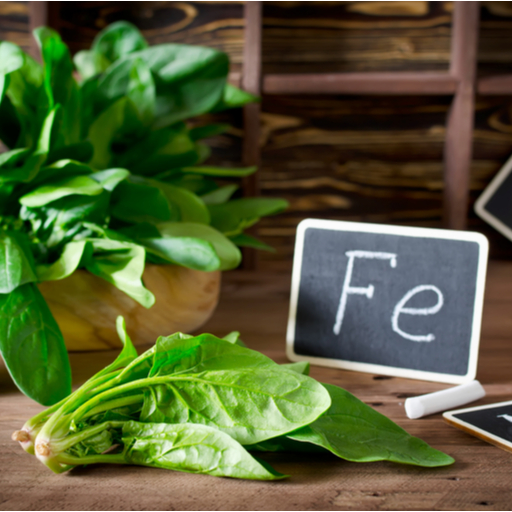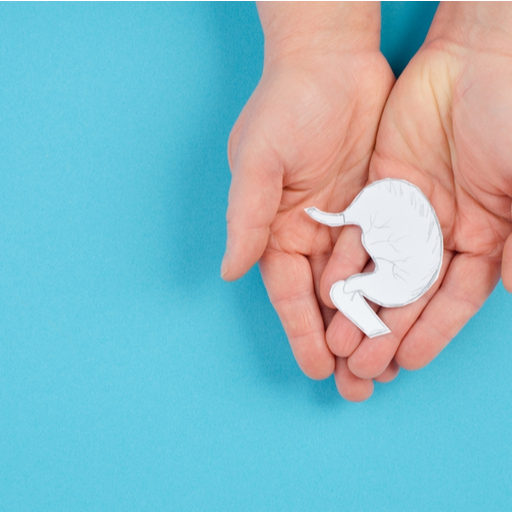The large intestine is home to many microorganisms, known as gut microbiota, which make up your gut microbiome. They regulate your immune system and improve your nutrient metabolism.
What you need to know:
- What are prebiotics?
- How do prebiotics support a healthy gut?
- Prebiotic foods you can add to your diet
What are prebiotics?
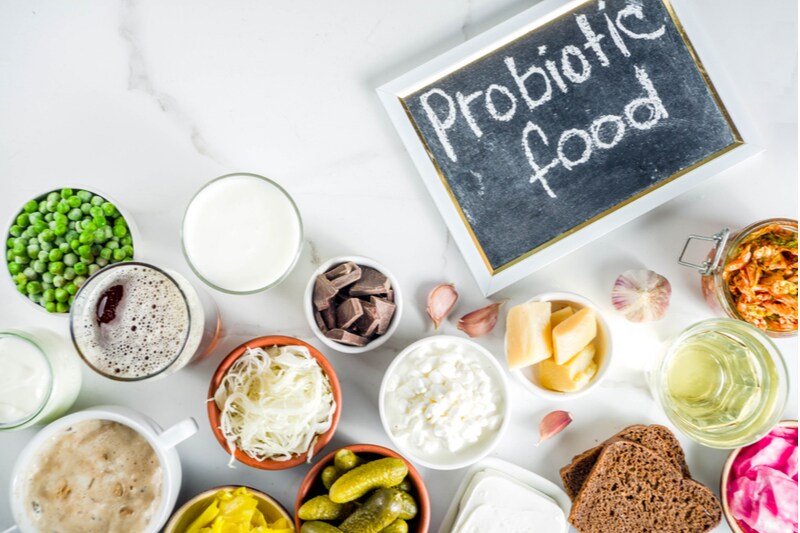 Prebiotics are non-living indigestible plant fibers that the good bacteria in the colon consume to survive. These are said to be non-digestible carbohydrates that are used up by the gut microbiota. Prebiotics are dietary compounds that stimulate the growth or activity of intestinal bacteria to improve health.
Prebiotics are non-living indigestible plant fibers that the good bacteria in the colon consume to survive. These are said to be non-digestible carbohydrates that are used up by the gut microbiota. Prebiotics are dietary compounds that stimulate the growth or activity of intestinal bacteria to improve health.
How do prebiotics support a healthy gut?
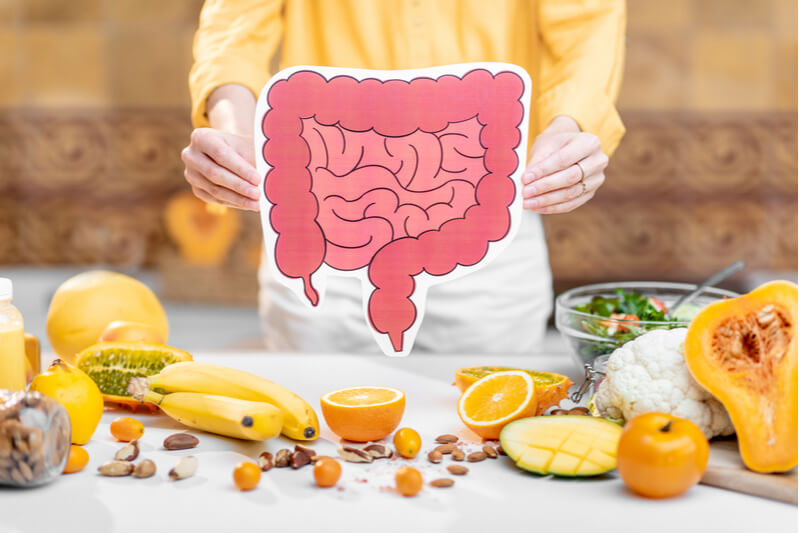 A healthy gut is essential to maintain the body’s natural processes. It comprises different microorganisms living in the gastrointestinal tract and helps regulate digestion, immune system stimulation, central nervous system, and cardiovascular system. Prebiotic foods help prevent obesity, regulate blood sugar levels, relieve constipation, and improve the absorption of minerals. Your gut microbiota may also reduce your risk of developing colon cancer, type 2 diabetes, and inflammatory bowel disease.
A healthy gut is essential to maintain the body’s natural processes. It comprises different microorganisms living in the gastrointestinal tract and helps regulate digestion, immune system stimulation, central nervous system, and cardiovascular system. Prebiotic foods help prevent obesity, regulate blood sugar levels, relieve constipation, and improve the absorption of minerals. Your gut microbiota may also reduce your risk of developing colon cancer, type 2 diabetes, and inflammatory bowel disease.
Prebiotic foods you can add to your diet
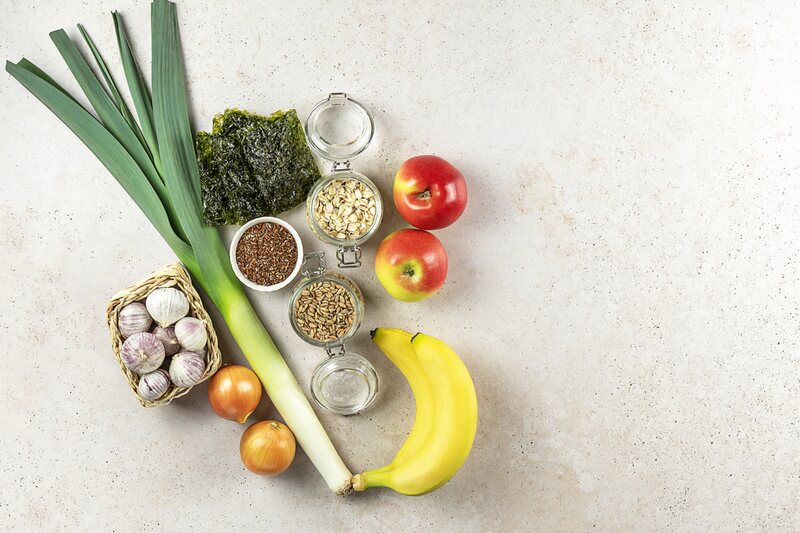 Here are some examples of prebiotic foods you can add to your diet:
Here are some examples of prebiotic foods you can add to your diet:
- Raw (green) bananas contain high amounts of resistant starch, which makes them an excellent prebiotic food. You can add bananas to Greek yogurt with honey and create a healthy dessert.
- Onions are a powerhouse of antioxidants and contain prebiotics which help break down food faster.
- It is best to consume raw garlic to obtain its prebiotic benefits. Instead of cooking it, you can crush or mince it and add it to salads, dips, or bread.
- Apples comprise antioxidants, pectin, and polyphenols that aid digestion, regulate cholesterol, and improve metabolism.
- Barley is a cereal grain consisting of beta-glucan, a type of prebiotic fiber. It boosts the growth of probiotics in the intestine. Beta-glucan is also said to lower blood sugar levels and LDL cholesterol and reduce the risk of cardiovascular diseases.
- Whole oats are a healthy grain with prebiotic benefits.
- Lentil is a protein-rich food that also eases bowel movements.
- Coffee is made from cocoa beans, which during the digestion process, produce flavonols in the colon that carries immense prebiotic benefits.
- Flaxseeds contain antioxidants that control cholesterol levels in the body. The fiber in flaxseeds absorbs dietary fat from ingested foods and helps maintain smooth bowel movements.
- Asparagus is a nutritious vegetable that is a great source of prebiotics. It contains insulin, a soluble fiber that improves your digestive health and can help your body maintain optimum glucose levels.
- Leeks belong to the family of onions and garlic. Although they are low in calories, they are high in vitamins and minerals. Their insulin content enables them to promote gut health and helps in breaking down fat.
Keep gastrointestinal and digestive problems at bay by making these prebiotic foods a part of your diet. Strive for a healthy gut, as it can fight many health conditions.
Stay tuned to the Activ Living Community. Keep up to date with the latest health tips and trends through expert videos, podcasts, articles, and much more in nutrition, fitness, mindfulness, and lifestyle conditions like Asthma, Blood Pressure, Cholesterol, and Diabetes.
You may also be interested in the following blogs:
- Gut Feeling Good: Why Probiotic Drinks Are The Key To A Happy Digestive System?
- Control Your Cholesterol. Know How You Can Reduce LDL Cholesterol Levels
Popular Searches
How to lower blood pressure | Fruits good for liver | Unhealthy foods | Ragi Benefits | Basal Metabolic Rate | Acupressure points for High Blood Pressure | Ayurvedic medicine for blood pressure | How to control cholesterol at home | Homeopathy for Asthma | Biological Age | Home remedies for TB | Natural beta blockers | Negative effects of internet | Types of walking | Blood pressure calculator | Blood sugar calculator | BMI Calculator





 1800-270-7000
1800-270-7000


